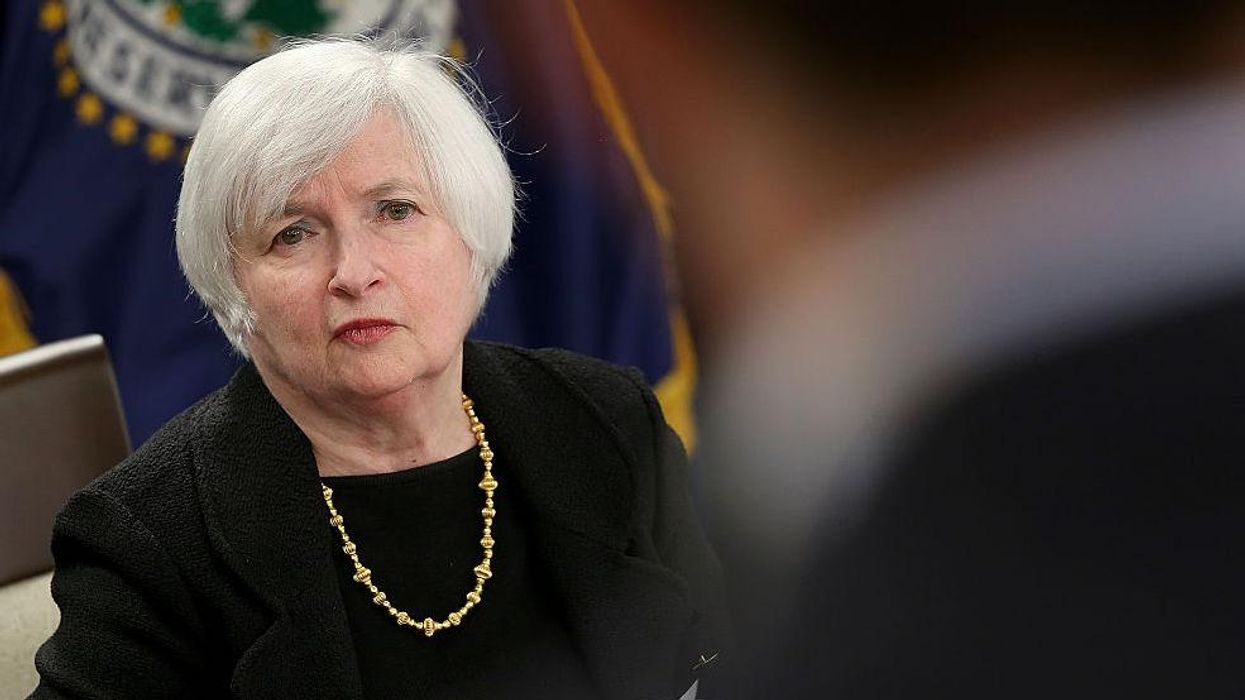
Win McNamee/Getty Images

Treasury Secretary Janet Yellen was promptly called out after defending a controversial proposal that could have the Internal Revenue Service intrusively tracking all bank accounts with transactions that annually total $600 or more.
To improve "tax compliance" and boost government revenue, the Treasury Department outlined a proposal in May that would allow the IRS to track bank account data for any account with withdrawals or deposits that annually total at least $600.
The proposal states:
This proposal would create a comprehensive financial account information reporting regime. Financial institutions would report data on financial accounts in an information return. The annual return will report gross inflows and outflows with a breakdown for physical cash, transactions with a foreign account, and transfers to and from another account with the same owner. This requirement would apply to all business and personal accounts from financial institutions, including bank, loan, and investment accounts, with the exception of accounts below a low de minimis gross flow threshold of $600 or fair market value of $600 .
Further, the proposal would give the treasury secretary "broad authority to issue regulations necessary to implement this proposal."
During an interview with "CBS Evening News" this week, Yellen defended the proposal, saying its purpose is to hold billionaires and wealthy Americans accountable.
"Look, the big picture is that we have a tax gap that over the next decade is estimated at $7 trillion," Yellen said. "Namely, a shortfall in the amount that IRS is collecting due to a failure of individuals to report the income that they have earned."
"But that's among billionaires," host Norah O'Donnell pointed out. "Is that among people who are transferring $600?"
"No, it tends to be among high-income individuals whose income is opaque and the IRS doesn't receive information about it," Yellen replied. "If you earn a paycheck, you get a W-2, the IRS knows about it. But high-income individuals with opaque sources of income that are not reported to the IRS, there's a lot of tax fraud and cheating that's going on, and all that's involved in this proposal is a few aggregate numbers about bank accounts: the amount that was received in the course of the year, the amount that went out in the course of a year."
\u201cThere\u2019s a lot of tax fraud and cheating that\u2019s going on.\u201d Treasury @SecYellen tells @NorahODonnell the proposed $600 IRS reporting requirement for banks is \u201cabsolutely not\u201d a way for the government to peek into American\u2019s pocketbooks but to hold billionaires accountable.pic.twitter.com/M3VKOhdtSu— CBS Evening News (@CBS Evening News) 1634069505
Yellen was promptly called out and accused of being dishonest.
Critics pointed out the obvious: If the proposal is about holding accountable wealthy Americans, like billionaires, why is the annual transaction threshold proposed to be a mere $600?
If the proposal ever came to fruition, it would take effect for tax years beginning after 2022.